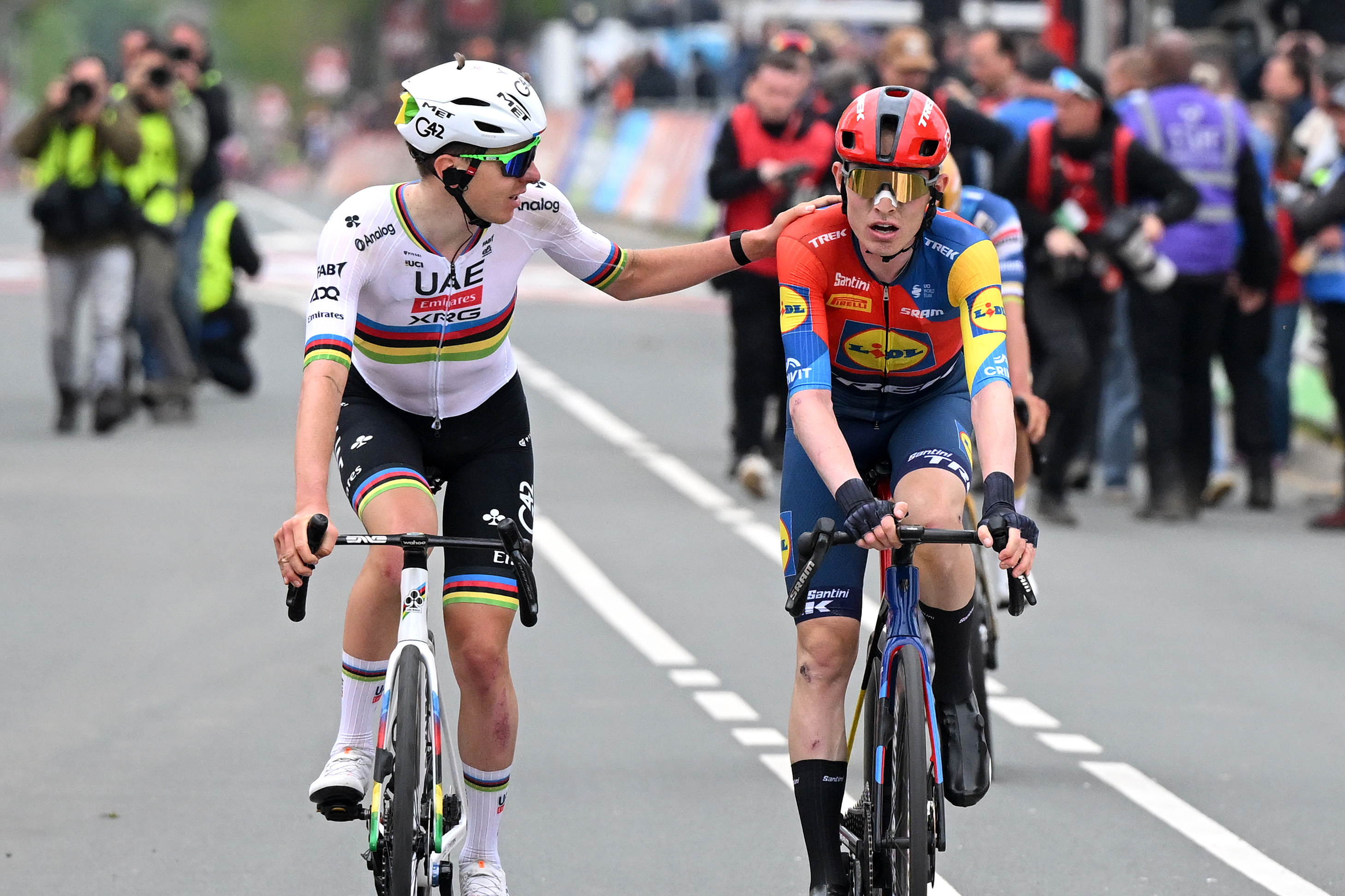
It looked set to be another trademark Tadej Pogačar victory. With over 40km remaining in the Amstel Gold Race, the world champion performed his party trick; he tagged onto the wheel of Julian Alaphilippe (Tudor), rode away from the peloton, and, still seated, coasted solo up the road. Nobody reacted. The gap ballooned out to more than 30 seconds. Victory, surely, would be his.
Mattias Skjelmose (Lidl-Trek) and Remco Evenepoel (Soudal Quick-Step) had other ideas.
Over the next hour, as the Slovenian attacked alone, the pair swapped through turns, clawing back the gap. Before long, they could see the rainbow bands ahead of them, and Pogačar’s head flicking back anxiously to track his chasers.
The impossible then looked inevitable. In a moment rarely seen, the world champion was caught. The trio rode together for 8km into the finale, where they sprinted against the wind, tossing their bikes in a photo-finish. Skjelmose, against the Olympic and world champions, emerged the most unlikely of winners. Pogačar picked up second.
“It was a really nice race,” the UAE Team Emirates-XRG rider told the media afterwards. “In the end, the line was five metres too far.
“When me and Alaphilippe went, I was hoping that he would stay longer with me together and that we could go long, but maybe we were too enthusiastic with the first attack. Since then, I tried to commit alone, but once Remco joined Skjelmose, they were two.
“The last 15km was a really strong headwind. I couldn’t make the gap bigger. I sort of decided to wait for them and tried to beat them in a sprint, but it was a little bit gambling, and second place in the end.”
Of the three riders, Pogačar had endured the most intense early season schedule. Victories at Strade Bianche and the Tour of Flanders came among podium finishes at Milan-San Remo and Paris-Roubaix, each race a more than 200km slog in his legs. Skjelmose had had more than a week’s rest since he finished fifth at Itzulia Basque Country, and Evenepoel had only raced once all year, recovering from injury to win De Brabantse Pijl on Friday.
The chasing duo's freshness came to the fore every time the road went uphill. “I knew that on the climbs they were coming closer, so I tried to accelerate always on the top and on the bottom,” Pogačar said.
“Like I said before, once it was 15km to go, it was a little bit downhill and a super strong headwind. This is where I paid the most for all the efforts before. They could roll through a bit with the two, probably, and gain some time there.”
His 30-second advantage levelled to zero, Pogačar accepted his fate and slowed to wait for his pursuers inside the final 10km. There would be no repeat of his 28km solo win at Amstel Gold Race two years ago. Instead, he would have to back his sprint, an unpredictable risk after 255km of racing.
“I was expecting [Evenepoel] to be strong. He showed everybody again that he’s in top shape, but in the end Skjelmose was the strongest today in the final sprint,” Pogačar said afterwards. Honourable in defeat, the world champion was the first to congratulate the Dane after the line.
It may not have been the start to the Ardennes Classics Pogačar had hoped for, but with La Flèche Wallonne on Wednesday, and Liège-Bastogne-Liège a week away, he will soon have a chance for revenge.







